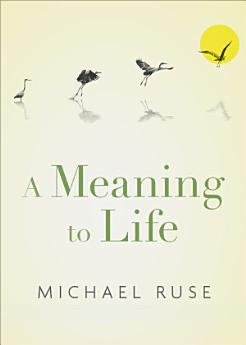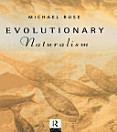A Meaning to Life
mar. 2019 · Oxford University Press
Rafbók
256
Síður
family_home
Gjaldgeng
info
reportEinkunnir og umsagnir eru ekki staðfestar Nánar
Um þessa rafbók
Does human life have any meaning? Does the question even make sense today? For centuries, the question of the meaning or purpose of human life was assumed by scholars and theologians to have a religious answer: life has meaning because humans were made in the image of a good god. In the 19th century, however, Charles Darwin's theory of evolution changed everything-and the human organism was seen to be more machine than spirit. Ever since, with the rise of science and decline of religious belief, there has been growing interest - and growing doubt - about whether human life really does have meaning. If it does, where might we find it? The historian and philosopher of science Michael Ruse investigates this question, and wonders whether we can find a new meaning to life within Darwinian views of human nature. If God no longer exists-or if God no longer cares-rather than promoting a bleak nihilism, many Darwinians think we can convert Darwin into a form of secular humanism. Ruse explains that, in a tradition going back to the time of Darwin himself, and represented today by the evolutionist E. O. Wilson, evolution is seen as progress -- "from monad to man" - and that positive meaning is found in continuing and supporting this upwards path of life. In A Meaning to Life, Michael Ruse argues that this is a false turn, and there is no real progress in the evolutionary process. Rather, meaning in the Darwinian age can be found if we turn to a kind of Darwinian existentialism, seeing our evolved human nature as the source of all meaning, both in the intellectual and social worlds. Ruse argues that it is only by accepting our true nature - evolved over millennia - that humankind can truly find what is meaningful.
Um höfundinn
Michael Ruse is the Lucyle T. Werkmeister Professor of Philosophy, and Director of the Program in the History and Philosophy of Science, at Florida State University. He has written or edited more than fifty books, including most recently On Purpose (2017) and the OUP volumes Darwinism as Religion (2016), and The Problem of War (2018).
Gefa þessari rafbók einkunn.
Segðu okkur hvað þér finnst.
Upplýsingar um lestur
Snjallsímar og spjaldtölvur
Settu upp forritið Google Play Books fyrir Android og iPad/iPhone. Það samstillist sjálfkrafa við reikninginn þinn og gerir þér kleift að lesa með eða án nettengingar hvar sem þú ert.
Fartölvur og tölvur
Hægt er að hlusta á hljóðbækur sem keyptar eru í Google Play í vafranum í tölvunni.
Lesbretti og önnur tæki
Til að lesa af lesbrettum eins og Kobo-lesbrettum þarftu að hlaða niður skrá og flytja hana yfir í tækið þitt. Fylgdu nákvæmum leiðbeiningum hjálparmiðstöðvar til að flytja skrár yfir í studd lesbretti.








